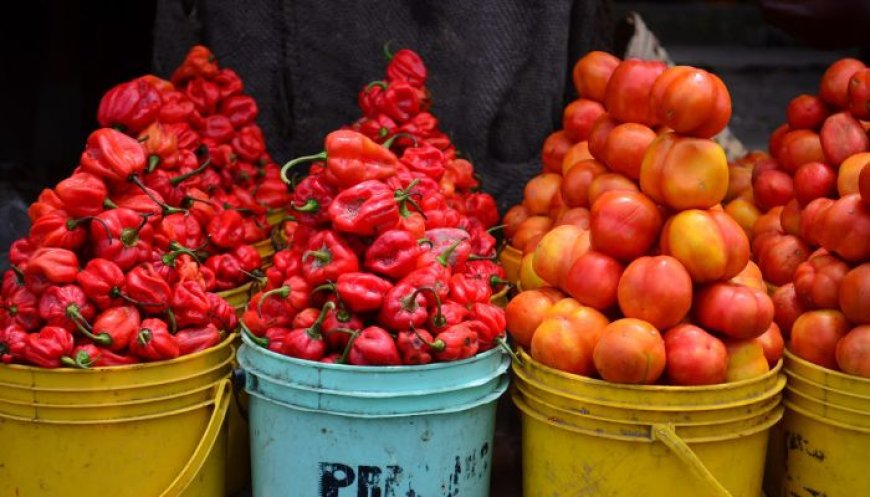Rising prices of tomato, pepper squeeze consumers

As Easter celebration kicks off this weekend, consumers are adjusting their culinary plans as the costs of fresh tomato and pepper – essential ingredients in the season’s menu – surge to record high.
The average market price of a big basket of fresh tomatoes has risen by 71 percent to N60,000, from N35,000 sold in January 2025, according to a BusinessDay’s survey across major markets in Lagos.
A small basket of fresh tomatoes now sells for N25,000 as against N15,000 sold in January this year, indicating a 66.7 percent increase in prices.
Also, a 25kg bag of pepper, popularly known as ‘Rodo,’ now sells for an average of N120,000 in Lagos, Nigeria’s commercial hub. This is four times its price of N30,000 in January 2025. A big bag of pepper now sells for N240,000 as against N80,000 sold in January this year, showing a 200 percent increase in price.
The price surge worsens the cost of living for low-income households as they struggle to maintain traditional recipes that heavily rely on tomatoes and pepper this holiday. This is also a setback to federal government efforts targeted at stabilising food prices.
“I would not be preparing rice and stew this Easter because of the high prices of tomatoes and pepper,” Oluwaseun Sunday, a secondary school teacher and mother of four, who was at Mile 12 Market to make purchases, said.
“I have opted to prepare moi-moi instead for my family as beans prices are cheaper now,” Sunday noted.
Obinna Okoye, a fashion designer and father of two, said he has already instructed his wife to prepare soup and swallow for the family. “We cannot afford to eat our usual jollof rice this Easter owing to the high prices of fresh tomatoes and pepper,” Okoye said.
He noted that his family does not consume tomato puree/paste, which is a substitute, due to the colouring and preservatives used in its preparation.
We do not consume tomato paste/puree; we only use fresh tomatoes and pepper in preparing jollof rice. This is because it is healthier to consume the fresh fruits than the ones they often add colouring to,” he added.
Shortages of pepper, tomato
Also, the price surge has left traders scrambling for fresh supplies as it upended the supply chain, forcing retailers to ration stocks or seek alternatives.
“There is a severe shortage of fresh pepper and tomatoes, and that’s what is driving prices through the roof,” said Yemisi Adegoroye, a trader at Lagos’ Mile 12 Market.
“I traveled all the way to Kano to secure pepper for my customers, but I couldn’t even find 10 bags to buy.”
With supply dwindling, some traders are now exploring imports from neighboring countries, though the depreciation of the naira against the CFA franc further complicates pricing.
Pest infestation ravages farms
Farmers interviewed by BusinessDay point Tuta Absoluta ravaging tomato farms across key producing states, decimating output.
Rabiu Zuntu, chairman of the Tomato Growers and Processors Association of Nigeria, said tomato farmlands in major growing states have recorded high percent losses owing to Tuta Absoluta.
Zuntu noted that the country has failed to tackle the recurring pest infestation that has led to losses for farmers already contending several issues.
“The invasion of the Tuta Absoluta virus, which began in early March, has ravaged some farms up North. The virus does not affect the tomatoes much during the wet season except during the hot season,” he said.
“The virus has affected supplies to markets across the country, which is why you notice some changes in the price of tomatoes. This is because some tomato farms have been completely destroyed by the virus despite being in the harvest season,” he added.
Tuta Absoluta has a reputation for swiftly ravaging tomato cultivation in a little above 48 hours – prompting farmers to nickname it ‘Tomato Ebola.’ It can breed between 10-12 generations in a year with the female capable of laying between 250 – 300 eggs within its lifetime.

 admin
admin 


